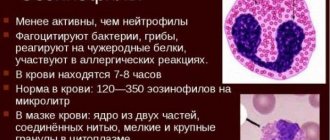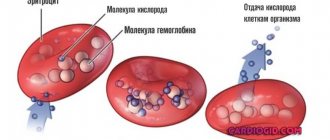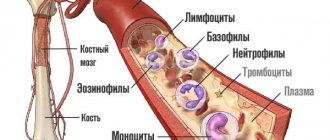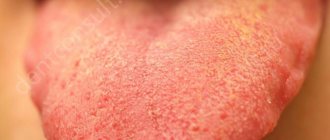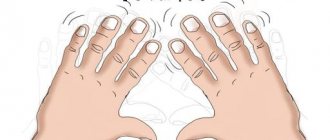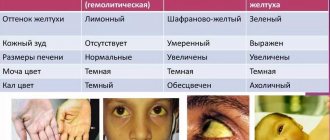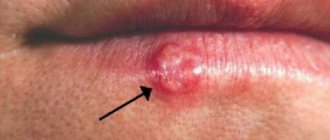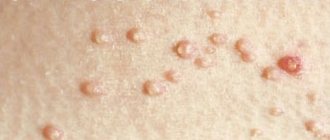Signs of worms . In nature, there are a huge number of different parasites that every now and then try to penetrate the human body. The first signs of worms in adults may resemble other common diseases, such as poisoning or acute respiratory viral infections. Timely treatment of helminthic infestation is a guarantee that the disease will not leave consequences for your health. Worms are parasites of humans and animals belonging to the class of flatworms or roundworms. Worms have a fairly common structure.
In their development, worms traditionally go through several stages: egg - larva - adult. Most infection of a person with worms occurs when he ingests worm eggs. Ingested eggs in the human intestinal tract quickly hatch into larvae, which begin to migrate to their place of permanent life, where they transform into adults. In the process of movement, almost all helminths make true “travels” through the human body. Only a few parasites (for example, pinworms) hatch from eggs in the intestinal tract and remain there.
Typically, the destruction of tissues and organs and the symptoms caused by larvae and other developing forms of helminths during movement are the most pronounced, compared with the symptoms caused by mature forms of parasites. As we said above, adult worms traditionally have a stable localization in the body, and their developing forms often migrate to different organs and tissues, and often the path of their movement is quite complex.
For example, with ascariasis, a person becomes infected by eating foods contaminated with worm eggs (ascaris eggs ripen in the ground). In the cavity of the intestinal tract, roundworm eggs hatch into larvae, which within a couple of hours enter through the wall of the intestinal tract into the blood vessels and are carried into the lungs through the bloodstream.
With ascariasis, a person becomes infected by eating foods contaminated with worm eggs (ascaris eggs ripen in the ground)
In the lungs, roundworm larvae grow and mature. The growing larva slowly gnaws into the adjacent bronchi and crawls along them, first into the trachea, and then into the oral cavity, where it is again swallowed and carried into the intestinal tract. The roundworm larva that re-enters the intestinal tract transforms into an adult worm.
Pulmonary migration of roundworm larvae is manifested by an abundance of symptoms (cough, asthma attacks, increased body temperature, allergic skin rash), and the presence of a small number of adult worms in the intestinal tract may not manifest itself in any way.
General information
Helminthiasis is a common problem among certain categories of the population. Children, as a rule, are parasitized by pinworms , people who often consume fish are diagnosed with diphyllobothriasis trichinosis is common among hunters .
The fact that human worms provoke the development of many diseases that would seem to have nothing to do with helminthiasis is currently confirmed by a wide variety of studies. In particular, there is a theory that helminthic diseases are associated with the development of oncological processes.
In addition, you should be aware that if there are helminths in the body, this does not mean that the patient will exhibit symptoms of such infection. Signs of their presence can be disguised as other ailments of the liver, gallbladder, and gastrointestinal tract. As a result, a person can use different means for a long time and not detect infection. And after the correct anthelmintic treatment regimen has been selected for the patient, the disease can be cured. Therefore, asking yourself the questions: “What should I do if I have helminths, how can I check for the presence of parasites, and will I infect my loved ones?”, you should not be afraid to consult a doctor and get all the answers, and also find out what to do if you have you are wormed.
Read the article below for answers to questions about what worms are, how dangerous such parasites are, and how to avoid becoming infected with different types of parasites. We will also talk about what are the signs of worm infection, both general and specific.
What types of helminths affect the stomach?
There are several helminths that can infect the body's digestive system, including the stomach. These include:
- intestinal acne;
- lamblia;
- roundworm;
- pinworms;
- hookworm;
- trichinella
Such worms in the human stomach are quite common and can be found in almost any country around the world. You can learn more about each of these worms to know what harm these worms cause.
How can you become infected with helminths?
Helminth eggs can enter the human body in different ways. There are four main methods of infection:
- Biohelminthoses . Worms can be found in raw or poorly cooked meat, as well as in fish. You can become infected by consuming lard, shish kebab, dried fish, sushi, etc.
- Geohelminthiases . Mature helminth eggs that are in the soil and water enter the body. They find themselves in this environment, and because human feces end up there, as well as animal feces. Infestations also occur when a person comes into contact with animals, for example, constantly cleaning up cat or dog feces, as well as when food is contaminated with fly eggs.
- Contact. The most common worms, human pinworms, are transmitted from person to person. In this case, the risk of getting this disease is highest.
- A number of parasites can enter the body when a person is bitten by insects.
When trying to find the answer to the question of what causes worms and how they are transmitted, it should be taken into account that the main route of infection by parasites is oral-fecal . That is, a person simply swallows worm eggs when he eats food or drinks water. In more rare cases, worms appear in humans after insect bites that have been infected.
Infection with worms through the soil
After contact with soil, sand, etc., you need to not only wash your hands very well, but also clean your nails. It is better for children to cut their nails very short. All vegetables that grow in the ground must be washed very thoroughly and, if possible, scalded with boiling water.
Animals and flies
Wikipedia shows that worm eggs can appear in the house and from domestic animals - cats, dogs that walk on the street. There is a high risk of infection if children play with such animals. Therefore, you need to take immediate action if you suspect that cats have worms. You can learn the symptoms and treatment of infection in animals from your veterinarian or watch the corresponding video online. In this way, any type of worms can appear in the body. Therefore, the answer to the question of whether they are transmitted from dogs to humans and whether it is possible to become infected from a dog is clear: yes, it is possible.
Another carrier of helminths is flies. They can initially land on feces and livestock waste, and then fly in and land on food. As a result, they spread helminth eggs, and people develop helminthic diseases after infection.
How are worms transmitted from person to person?
How can you become infected with pinworms, and are these parasites transmitted from person to person? The answer to this question is simple: if a female pinworm crawls out of the intestines through the rectum in a baby’s bottom at night, she can lay a large number of eggs near the anus – up to 5,000 eggs. As a result, severe itching occurs, the baby itches, and eggs fall on his hands. Then the eggs fall from the baby’s hands onto clothes, bed, and other objects that the child touches. It is clear how the worms are transmitted further: the eggs infect other children and adults, after which small white pinworms multiply in the body. This is why it is very important to wash your hands before eating and after coming home from public places.
Infection through water
A lot of parasite eggs are found in open water bodies, as well as in well water. That is why people who use such water must use a special bactericidal filter. It is also very important to boil the water that you drink and eat dishes prepared from it. It is very dangerous to swallow water from reservoirs.
It should be taken into account when talking about what helminthic infestation , that this is a disease that mainly affects children, since they are very susceptible to helminthiases. The fact is that in children, protective barriers are not yet developed to the same extent as in an adult; their stomach acidity is lower.
Also, signs of the presence of worms in a child appear very often due to the fact that young children, in the process of exploring the world, taste everything that comes to hand. Therefore, parents very often notice symptoms of helminthic infestation in children, in particular, itching of the anus , poor appetite , cough in children when infected, etc. But it is still impossible to teach the baby to strictly follow the rules of hygiene in the first years of his life. Therefore, at this time, the risk of infection is high for all family members.
Speaking about eggworm - what it is and how to treat this disease, you should remember that worms do not reproduce in the human body. Worms in the human body die over a certain period of time. For example, pinworms live for several weeks, roundworms for about one year. The eggs that adult parasites lay in the body are sure to come out of the intestines - either when feces or baby poop comes out, or they get on the skin near the anus, as happens with pinworm worms. When the eggs are outside the human body, they mature in the external environment, after which they enter the human body again and parasitize it again.
Since worms do not reproduce in the body, large numbers of helminths are observed only if re-infection occurs, if the eggs again enter the body through the mouth.
Consequently, if re-infection does not occur, the pinworms living in the body die in about 4 weeks. And if you carefully follow all preventive measures, you can get rid of the presence of worms without treatment. However, in the case of children, compliance with all these rules is a very difficult task.
Causes of helminthiasis
Worms can affect not only the intestines, but also the stomach, lungs, liver, cardiovascular system, and brain. Often the cause of invasion is failure to comply with personal hygiene rules.
Usually this:
- lack of habit of washing hands before eating, after going outside, contacting the ground, or street animals;
- eating raw dirty vegetables and fruits;
- drinking unboiled contaminated water;
- consumption of thermally unprocessed fish and meat.
In a child, infection can occur while playing in the sandbox. Often the peak of infection occurs during the warm season. Parasite eggs can enter the home through:
- pet hair;
- shoes;
- dust;
- insects
It is impossible to see helminth eggs; you can only adhere to certain rules to prevent invasion.
Signs of helminths
When infected with parasites, certain first symptoms of worms appear in humans. You can find out in detail from a specialist what symptoms of worms appear if you are infected. But some signs of worms in humans can be easily noticed independently.
So, the most striking sign that a parasite infection has occurred is the presence of sudden weight loss . The patient’s skin also turns pale – this is how anemia . In appearance, signs of helminthic infestation are also displayed - the person looks exhausted, and his level of fatigue may increase.
Helminths cause itching in the anus if the intestines are infected. However, they can also parasitize other organs - the lungs, liver, bladder, and even the arm or leg, etc.
However, all of the above symptoms of parasites in the human body are only the first general signs of infection, which develop with massive damage to the body by worms and make it possible to recognize that something is wrong with health. There are other, more specific symptoms of helminthic infestation in adults. The patient may perceive them as a manifestation of other diseases. At the same time, he can treat such diseases for a long time, of course, without success. This lasts until the exact cause of such symptoms is determined - helminthiasis. You can see more details about this in the corresponding videos on the Internet.
What symptoms of worms can occur in an adult and a child?
Digestive disorders
If the parasites are localized in the intestines and not in other organs, then the main symptoms in an adult and a child are dysfunction of the digestive system. A person may be bothered by constant diarrhea or constipation , periodic nausea, vomiting, stomach pain, pain in the right hypochondrium, near the navel, and intestinal disorders. If intestinal parasites are present, flatulence .
All of the above symptoms can be either strong or weak, long-lasting or intermittent. It all depends on the severity of the infection. There are types of helminths that produce hormone-like substances, under the influence of which constant diarrhea develops. If large worms grow large (such as tapeworms ), they block the intestines and cause constipation.
General malaise, nervous system disorders
Worms live and secrete very large amounts of toxic substances, regardless of whether parasites live in the blood , liver, and lungs of humans. The more massive the infection, the more pronounced the signs of intoxication of the body, which negatively affects the nervous system.
headache , dizziness develop . Some people mistake such signs for the development of a migraine , and, as a result, take painkillers.
Sometimes, when infected with parasites, the temperature rises and joint pain occurs. In addition, helminth infections provoke a deficiency of vitamins and nutrients in the body. This phenomenon, as well as depression of the nervous system, leads to the manifestation of chronic fatigue syndrome . The patient feels tired, he is worried about drowsiness , and a feeling of weakness in the body. If we are talking about a child, he is capricious and constantly nervous. Young children have trouble sleeping and cry or scream at night. School-age children may struggle to learn due to inattention and fatigue.
Allergies and skin manifestations
Worms cause deterioration of the skin. Toxins with which worms infect the body negatively affect its general condition and can provoke a variety of reactions on the skin. Rashes appear as a result of the release of histamine from mast cells and the accumulation of the liquid part of the blood in the tissue with lifting of the epidermis .
The same reasons lead to the development of allergic reactions . itching , red spots, pimples, urticaria , as well as dry cough, allergic rhinitis , and manifestations of bronchial asthma may appear . Also, when infected, nails may peel, hair may become brittle, and cracks may appear on the heels .
Deterioration of immunity and infectious diseases
Since worms feed in the body, they release toxic waste products. The toxic effect, the decrease in vitamins and minerals in the body leads to the fact that immunity significantly deteriorates. As a result, the health status of chronic diseases also worsens, and inflammatory processes in the nasopharynx - sinusitis , stomatitis - . In women and girls, vulvovaginitis and bacterial vaginosis . There is evidence that with prolonged infection with pinworms, inflammation of the appendages . In this case, it is very important to detect their presence in a timely manner. Parasites in the liver also cause bad breath and a persistent bad taste.
There is also an opinion that worms in humans provoke the appearance of snoring and night grinding of teeth . But at present such a relationship has not been proven.
Could there be worms in the brain, stomach or under the skin?
Some groups of parasites can infect the brain, parasitize under the skin and in the stomach. The presence of parasites in the stomach occurs only in people with low acidity of the organ - parasites cannot exist in an acidic environment.
Many types of worms that migrate throughout the body through the circulatory system, such as roundworms, can enter the brain. They enter the lungs, then the nasopharynx and the brain.
This is what a parasite-damaged brain looks like
There are also worms that parasitize only under the skin. These parasites cause the following diseases:
- dirofilariasis;
- filariasis;
- cysticercosis;
- schistosomiasis;
- dracunculiasis.
Where do parasites live in the human body?
The types of parasites in the human body are determined depending on where exactly in the body they live. How to determine the presence and how to remove parasites from the body depends on their type.
Translucent
These worms inhabit mainly the intestines, living in its various sections. Hookworms, roundworms, broad tapeworms, and other tapeworms are localized in the small intestine. The small intestine is inhabited by dwarf tapeworms and pinworms, and the large intestine is inhabited by whipworms. There are about a hundred species of cavity parasites. Pictures and images can be found online.
Fabric
These types of worms in humans do not live in the intestines, but in organs and tissues. There are varieties that live in the brain ( cysticercosis ), in the liver ( echinococcosis ), lungs ( paragonimiasis ), in the muscles, in the lymphatic vessels ( filariasis ), as well as other helminths.
Photos of helminths
You can find out what other worms a person has from a specialist.
Roundworms are a species that belongs to both luminal and tissue parasites, since in the first phase of their development they can move through the blood and affect any organ. How to get rid of roundworms will be told by your doctor, who will prescribe a treatment regimen for infection with such parasites.
You can find out what worms look like in humans by looking at an image of the corresponding type of parasite. Special literature shows what worm eggs look like.
Flat tapeworms
A fairly common group of worms that require an intermediate host to reproduce. They can develop only in the body of vertebrates.
This group of parasites includes:
- tapeworms;
- echinococcus;
- wide tape.
Infestation by these worms is accompanied by the following symptoms:
- deterioration or complete loss of appetite;
- attacks of nausea;
- stomach ache;
- dizziness;
- increased fatigue, general weakness;
- retension;
- unhealthy pale skin color;
- swelling of the limbs, face;
- hepatic colic;
- epilepsy attacks;
- deterioration of mental abilities.
Take a test for worms
Signs of infection depending on the type
Photo of worms in humans
How worms manifest themselves and why they are dangerous depends on the type of parasite, where exactly in the body they live, and also on the intensity of infection. Signs of infestation in humans can be detected within a few days. For example, if roundworms appear, then health deteriorates within 2-3 days. When infected with other types of helminths, the first signs are observed in the patient after 2-3 weeks. The incubation period of filariasis ranges from 6 to 18 months.
Intestinal worms are dangerous from the point of view that if there is a single individual in the intestines, then it is impossible to understand that a person is infected, since there are no signs. Certain symptoms may only bother you if the worms are long (ascaris, wide tapeworm, etc.), or if a massive infection has occurred. Almost all helminthiasis causes headache, fatigue, dizziness , and irritability.
What types of worms are there, what are they called and what do they look like?
Photo of worm eggs
- Pinworms (enterobiasis) - the presence of this type of helminth can be determined by the manifestation of the main symptoms, as well as by the manifestation of itching in the anus, which becomes more intense at night. If there are only a small number of pinworms in the body, the itching may occur for a few days, then go away and appear again after a few weeks. With severe infestation, itching may be felt constantly.
- Roundworms - what are the signs of ascariasis depends on the phase of development of these parasites. In the phase when the larvae migrate to the heart, lungs and other organs, there is weakness, low-grade fever, and a cough that produces sputum, sometimes with pus and blood. If you take an X-ray of the lungs at this time, it will show volatile infiltrates, which later disappear. Allergic reactions develop, a blood test demonstrates a large percentage of eosinophils . If the infestation is severe, the development of bronchitis , pneumonia, and asthma attacks is likely. People often wonder if there can be a cough when infected? Indeed, it is possible. You may also experience a sore throat . Signs of the second phase are associated with digestive disorders. Roundworms produce substances that neutralize pepsin and trypsin, human digestive enzymes . As a result, proteins are not digested, and the patient loses a lot of weight. Ascariasis sometimes causes complications - pancreatitis , obstructive jaundice, intestinal obstruction , appendicitis .
- Ankylostomiasis , schistosomiasis , diphyllobothriasis , trichocephalosis - with such lesions anemia and vitamin deficiencies develop. After all, the toxins that helminths of these varieties secrete significantly worsen microflora , provoking the development of dysbacteriosis .
- Opisthorchiasis , fascioliasis , clonorchiasis are liver parasites. The consequences of invasion are icteric syndrome, enlarged liver, spleen, pancreatitis, cholecystocholangitis, neurological disorders, pathologies of the digestive system.
- Trichinosis - with such a lesion, the most common symptoms are muscle pain, swelling of the eyelids, swelling of the face, fever .
- Strongyloidiasis is caused by roundworms, the symptoms are very varied. Signs of dyspepsia, allergies, biliary tract dysfunction, etc. may appear.
- Urogenital schistosomiasis is caused by flatworms and manifests itself as diuretic disorders. At the end of urination, blood is found in the urine. In men, it can lead to pathological lesions of the prostate and pathology of the seminal vesicles. In women it causes consequences in the form of vaginal bleeding and genital lesions. Fibrosis may appear in the bladder.
- Cestodosis is caused by tapeworms. These are bovine tapeworm, sheep brainworm, echinococcus, tapeworm, etc. Signs of the disease are severe weight loss, weakness, and gastrointestinal dysfunction.
Worms in the eyes
Helminths in the eyes are rarely found. Parasites are mainly found in the eyes of residents of humid and hot countries. “Eye” parasites are pork tapeworm, roundworms, and opisthorchis. Sometimes parasites enter the eyes from the external environment, sometimes from the intestines. In this case, it is important to immediately consult a doctor and find out how to treat the disease. To avoid infection, it is important to maintain facial hygiene, as well as general rules for disease prevention.
White worms in stool: what could they be?
If there are small specimens in the stool, about 12 mm, these are most likely pinworms. If the worms in a person are larger (about 40 cm), this is most likely a sign of roundworm infection. If any parasites appear in the stool, you need to visit a medical facility for diagnosis and testing.
Based on the results of laboratory tests, the doctor will make an accurate diagnosis and select the most effective method of treatment.
You should not self-medicate if you suspect a helminthic infestation - the drugs are toxic, the dosage and duration of treatment are selected individually.
Most folk recipes are effective only for preventing or reducing negative symptoms, but are not able to cure helminthiasis.
When resorting to home therapy methods, you need to remember that all treatment methods have a number of contraindications, if ignored, side symptoms develop. They can not only aggravate the problem, but also complicate the process of further treatment and recovery.
Any therapy necessarily includes compliance with preventive standards that reduce the risk of relapse.
No one is safe from helminth infestation. Signs of infection may not appear for a long time or have symptoms similar to other diseases, which significantly complicates the process of diagnosing invasion.
If any negative symptoms appear, it is better to consult a doctor to determine its cause and only then begin treatment.
How to determine the presence of worms in a person?
If you are concerned about certain symptoms indicating infection, a person is naturally concerned about how to understand whether you have helminths. Of course, it is possible to say for sure whether there is an infection or not only after visiting a doctor and conducting all the necessary tests. But there are other methods that are suitable for those who are interested in how to find out that you have worms. To do this, you need to carefully monitor your health and pay attention to changes occurring in the body. After all, the presence of some pronounced symptoms answers the question of how to understand that you have worms.
How to determine a possible invasion?
A special test will help identify parasites in the body. You need to carefully read the signs given below and count how many positive answers were given.
- Constant or recurrent itching in the anus.
- Skin rashes appear.
- Dizziness, frequent headaches.
- Periodically feels nauseous and vomits for no reason.
- Flatulence, diarrhea, bloating, constipation.
- Restless sleep, screams in sleep.
- Swelling of the legs.
- Various allergic manifestations.
- Lymph nodes are enlarged.
- There is a feeling of bitterness in the mouth .
- My stomach hurts, the pain goes away on its own.
- Increased body temperature for no reason.
- Constant feeling of tiredness, severe fatigue.
- Work in a children's team, preschool children in the family.
- Yellowing of the skin and mucous membranes.
- Pain in muscles and joints without exercise.
- Snoring and grinding teeth at night.
- Having animals in the house, working with animals.
- You are one of the people who like to eat dried fish, meat, sushi, and lard that has streaks of meat in it.
- Weight constantly decreases, while appetite - decrease or increase.
- You are not used to washing vegetables, herbs, fruits; you never scald them with boiling water before consuming them.
Photos of skin rashes due to worms
Next, you need to count how many statements are correct for you. If there are 7 or more positive answers, then there is a risk that you may have a parasitic infection. If there are 15 or more positive answers, the likelihood of helminthiasis is very high. In this case, you need to contact a specialist - a parasitologist or infectious disease specialist.
Methods for treating helminthic dermatitis
Naturally, treatment of helminthic dermatitis is pointless without treating the helminthiasis itself - until the cause of the rash is eliminated, acne from worms will remain on the skin. List of popular anthelmintic drugs: Ditrazine, Vero-Mebendazole, Wormin, Ditrazine citrate, Diethylcarbamazine, Vermox, Mebendazole, Sanoxal, Biltricide. Nemozol, Gelmadol, Aldazol, Vormil, Telmox, Zentel, Gelmedazol, Ditrazine phosphate.
Treatment of helminthiasis must be combined with the use of drugs that can alleviate the patient’s condition, relieving intoxication and itching.
- Antihistamines are good at reducing pain and itching in helminthic dermatitis. Popular modern antihistamines are Telfast, NeoClaritin, Lordestin, Suprastinex, Glencet, Fexofast, Cesera, Fexadin, Allergostop, Eriu.
- Local preparations against dermatitis. Medicines of this type can not only cure acne from worms, but also maintain the normal condition of the skin after helminthiasis: Powercourt cream, Fluorocort (ointment), Oxycort (ointment), Flucinar (gel, ointment), Elokom (cream, ointment, lotion), Cutivate (cream, ointment), Lorinden A (ointment), Beloderm (cream, ointment), Laticort (cream), Lorinden S (ointment), Akriderm (cream, ointment), Dermovate (cream, ointment), Afloderm (cream, ointment) ), Advantan (cream, ointment, emulsion), Gistan-N (cream), Sinaflan (ointment), Cortomycetin (ointment), Momat (cream, ointment), Polcortolon (ointment), Uniderm (cream), Pimafucort (cream, ointment ), Celestoderm-B (cream, ointment).
Attention! The list of medicines against worms and medications designed to alleviate the condition of a person with helminthiasis is given for informational purposes. Self-diagnosis and treatment of helminth infections can be harmful to health. If you suspect a helminthic infestation, you should consult a doctor!
How to get tested for worms
If it is necessary to conduct research, the doctor will prescribe a test for helminth eggs in the feces. To do this, you need to pass feces three times. A blood test for worms is also prescribed in adults, and the same analysis is carried out in children. It is also necessary to donate blood for Giardia . The patient is also prescribed a scraping for enterobiasis , which must be done three times.
Testing for eggs in human stool involves examining the stool under a microscope. Such a study makes it possible to diagnose ascariasis, trichuriasis, hookworm infection, enterobiasis, etc.
It should be taken into account when taking tests for helminth eggs that this is a test for which you need to prepare in advance. Thus, 72 hours before the analysis you should:
- exclude the administration of rectal medications, the use of laxatives ;
- limit the use of medications that affect the color of stool and intestinal motility.
The disease is excluded if no worm eggs are found in the samples. If worms are found in the stool, a count is made of how many there are in the stool.
Signs of worms. Methods for diagnosing helminthiasis
To identify worms in the body of an adult, ovoscopy is most often used. This study consists of analyzing stool for eggs of worms that parasitize the organs of the digestive system. Unfortunately, it is not always possible to obtain 100% results, since not all worms systematically lay eggs.
Signs of worms . A more accurate result can be achieved using a histological coprogram, which consists of microscopying thin sections of stool. Thanks to this study, it is possible to clearly identify parts of the bodies of worms, as well as their eggs. As a result, it is possible not only to diagnose helminthiasis, but also to determine the type of parasites identified.
If there is a suspicion that helminths are localized in the lungs, radiography is indicated. In addition, a sputum examination is performed. A CT scan or ultrasound scan is done to identify parasites in the liver, brain or kidneys. To diagnose helminths in the blood, a general blood test is done. Immunological tests may also be performed for this purpose.
How to get rid of worms in humans?
When infection occurs, the pressing question is how to get rid of parasites in children and adults.
Currently, treatment of worms in humans is carried out using modern drugs. Treatment of helminths in an adult is carried out using more than ten drugs that are active against different types of worms. There are broad-spectrum and narrow-spectrum medications. Since a person can be infected with different types of helminths (in total, more than 70 species parasitize them in our regions), it is important to choose the right specific drug. Therefore, the decision on how to treat and how to treat helminthiasis should be made only by a specialist after testing. To get a detailed consultation, you should contact a parasitologist. However, if a patient goes to a small clinic or outpatient clinic, you can find out which doctor treats this disease directly at the medical institution.
It is important to note that medications for worms are very toxic. Therefore, only a doctor can identify symptoms and prescribe treatment for helminths in a person, having established a diagnosis. In the process of prescribing medications, a person’s weight and age are taken into account. Also, when infected with different helminths, different treatment regimens are required.
Therefore, those who are interested in how to recover from infection should definitely consult a doctor and not practice exclusively treatment with folk remedies.
There is a lot of advice on how to remove worms from a person at home, but a guaranteed method of getting rid of parasites is drug treatment.
The answer to the question whether helminths can exit through the mouth is positive. But they vomit only after taking certain medications.
Drugs used to treat helminthiasis
| Active substance | Drugs | Action |
| Piperazine | Piperazine | Worms in the stomach are subject to paralysis, since under the influence of the drug the flow of nerve impulses to the muscles is disrupted. Excreted in feces. |
| Pirantel | Pyrantel , Helmintox , Combantrin, Nemotsid | They cause neuromuscular blockade in worms, they quickly die. They come out with feces. |
| Mebendazole | Vermakar , Vermox , Vero-Mebendazole, Mebex, Vormin, Thermox | Under the influence of the tablets, the processes of cellular globulin synthesis are suspended. As a result, paralysis occurs and the worms die. |
| Albendazole | Gelmodol-VM, Nemozol, Vormil | They paralyze worms and also disrupt their metabolism at the cellular level. Excreted in feces or vomit and may be digested or unchanged. |
| Karbendatsim | Medamin | Paralyzes the muscles of helminths. It comes out in the feces. |
| Levamisole | Dekaris | Affects metabolism worm cells. They experience paralysis, after which 24 hours after taking the drug, the helminths are excreted in the feces. They don't come out vomiting. |
| Pyrvinium embonate | Pirkon, Vanquin, Pyrivinium | Effective against enterobiasis, they block the enzyme systems of helminths, thereby disrupting the transport and metabolism of glucose. |
How do worms come out from a person after treatment? They are excreted in feces and vomit, remaining unchanged and in a state of paralysis.
Helmids can also be released in vomit or feces in the form of fragments. If the patient has very active intestinal motility, intensive digestion of food and, accordingly, helminths occurs, which are then eliminated in the form of particles.
Regardless of how the worms come out, it is important that particles or whole worms are visible. However, sometimes no worms are found in the stool after taking medications. This may indicate that the body has digested the dead helminths inside.
However, if the parasites cannot be removed, this may be an indication that the dose of the medicine was chosen incorrectly, or the drug was chosen incorrectly.
However, if the tablets were taken for preventive purposes, then, of course, they will not fall out, since there are no helminths in the body.
Since some medications do not act on the larvae and eggs of worms, in order to completely drive away the parasites, you need to repeat the treatment after 2-3 weeks. If the treatment was carried out correctly and infection does not occur, then getting rid of the parasites is sure to occur.
In addition to “scientific” treatment, there are also folk remedies, the use of which is relevant for those who are interested in how to get rid of parasites, in particular, to get rid of tapeworm. We are talking about the use of pumpkin seeds and tansy grass, which have long been used to “poison” parasites. Those who have already been interested in how to get rid of parasites in the human body know that pumpkin seeds are a good remedy for removing parasites from the body. To rid yourself of helminths, it is better to eat raw seeds with a thin film between the peel and the seed. There is the following recipe for those who treat helminth infections: 300 g of pumpkin seeds, crushed and mixed with honey, should be eaten within an hour in the morning. After this, you can’t eat anything for 3-4 hours. Next you need to do an enema. Reviews indicate that such a medicine can be effective. There is also evidence that ginger, garlic, etc. help drive out worms.
The fact that the fight against worms was successful is evidenced by an improvement in the general state of human health. It is very important not to hope that the infection will go away on its own, because the answer to the question “Can the worms themselves go away?” ambiguous. After all, even if a person’s white worms or other types of helminths die, then the likelihood of the one who was infected will “catch” the parasites again is very high. Therefore, it is necessary to fight helminths systematically and correctly. And after taking the pills, be sure to get checked: a check in the form of tests is needed to thoroughly check the condition of the body and make sure that all helminths have been removed.
If the body is parasitized by subcutaneous worms, then tablets are not relevant in this case. If a parasite grows under the skin, surgical treatment is practiced: the skin is cut open and they come out. Why is it important to see a doctor on time? To avoid unwanted complications, especially in the elderly and children.
What is the treatment?
Therapy for helminthiases is comprehensive. Treatment methods are selected individually based on the general condition of the patient and the form of invasion. Typically the treatment regimen includes:
- antihistamines;
- anthelmintics;
- immunomodulators, vitamin-mineral complexes;
- sedative;
- antibacterial drugs;
- preventive measures;
- in some cases, folk recipes are allowed;
- sorbents and enterosorbents.
It is prohibited to make changes to the treatment regimen on your own. If taking any medications causes side symptoms, it is better to stop taking them and consult a doctor to adjust the therapy.
Without timely medical attention, helminthiasis can cause serious health problems and can cause death!
Prevention of worm infection
To prevent infection, you need to clearly understand what the causes of invasion are, what helminthiasis is, and what worms are. It is important to take all preventive measures, which significantly reduces the likelihood of infection.
- You need to thoroughly wash fruits and vegetables and pour boiling water over them.
- It is important to fight flies, cockroaches, mosquitoes - to track where they come from and destroy them.
- Cook meat and fish for at least 40-60 minutes.
- You need to use only your own hygiene items - a towel, a comb (to prevent lice from being transmitted), etc.
- It is important to teach your child to immediately go and wash his hands with soap before eating, as well as after each contact with animals.
- If there are animals in the house, large and small, you need to constantly give them means to prevent worms. To find out which ones, you should contact your veterinarian.
- It is important that the youngest children play only with clean toys; they should also immediately wash a dropped pacifier or pacifier.
- Children should be weaned from bad habits - sucking fingers, biting nails, putting different things in their mouth.
- The baby should have clean and short nails.
- To prevent re-infection with pinworms, the baby needs to wear thick panties at night, which prevents the spread of parasites and eggs throughout the bed.
- It is important to iron baby clothes after washing.
- In the morning you need to change your panties and wash your baby thoroughly.
Why do worms appear again after treatment?
The appearance of parasites after a course of therapy may indicate that the treatment was chosen incorrectly or the drug was ineffective.
This happens when a person chooses treatment himself, not knowing what type of helminths has settled in the body.
The second option is the return of the problem - self-infection. More often this occurs when infected with pinworms.
A person scratches the itchy skin around the anus and, if hygiene rules are not followed, transfers parasite eggs to clothing and household items. In the future, they may appear in the body again and the cycle of life will repeat again.
A common reason for the return of worms is further neglect of the rules of food consumption, insufficient heat treatment, and drinking dirty water.
In some cases, a person takes the drug only once during a course of treatment. The wrong dosage will also not be able to completely kill and remove parasites; over time, they may reappear.
Repeated contact with infected people or animals will cause worms to appear even after treatment has been completed. For preventive purposes, all household members should be examined and treated if necessary. This also applies to pets.
Worm infestation is a common problem from which it is almost impossible to completely protect yourself. Paying attention to your health will allow you to notice disturbing symptoms in time by undergoing treatment.
Treatment if roundworms are detected
If a doctor discovers ascaris or trichinella in a person’s intestines, the parasitologist can prescribe quite popular medications, these include:
- Mebendazole;
- Piperazine;
- Albendazole.
Important! If treatment is not carried out on time, helminths may begin to migrate, which will lead to serious dysfunction of various organ systems. In addition, if left untreated, helminthiasis spreads and causes a weakening of the body's immunity.
What worms cause bright skin manifestations?
Helminthiasis is a disease caused by parasites called pinworms, roundworms and giardia. The epidermis reacts sharply to the presence of tapeworms. A rash appears as a reaction of the body to the toxic substances that they release in the course of their life. Only medical intervention will eliminate parasitosis.
- Roundworms. These are roundworms that enter the stomach after interacting with pets, walking, or eating unwashed fruits and vegetables. The skin rash looks like hives - small red spots. As the disease progresses, the rash spreads to the entire body, to the mucous membranes, and is very itchy and itchy.
- Pinworms. The disease in which pinworm infection occurs is called enterobiasis. You can become infected from contact with sick people, inhaling street dust, or eating fruits and vegetables that have not been heat-treated. External symptoms are the presence of different types of rashes, which lead to redness of large areas of the skin and swelling.
- Giardiasis. The disease occurs when the protozoan worm Giardia infects the small intestine. If they begin to actively multiply, this leads to severe toxic poisoning, which invariably affects the skin. She becomes pale and the number of acne increases. There are several types of rashes: from urticaria with blisters to extensive dermatoses with unbearable itching and subcutaneous nodules.
- Tapeworm. Its activity in the human body leads to intoxication, which can externally manifest itself in skin rashes, increased fungal activity, flaky, itchy skin. This occurs when the liver can no longer cope with the poisoning that occurs due to the presence of worms.
Medical nutrition
During the treatment process, the digestive system will need support, which is why doctors recommend following a certain diet so that the organs recover faster. As experts say, it is important to exclude from the diet:
- fried and fatty foods;
- spicy and smoked products;
- pasta;
- potato;
- salty foods and alcoholic drinks;
- you should stop smoking;
- Bakery and flour products are not recommended.
But the patient must eat properly and nutritiously; for this reason, his diet includes foods that have been baked or boiled, or steamed dishes can be prepared. Useful products include:
- ripe melon, strawberries and carrots;
- pumpkin seeds will be useful;
- you can eat watermelon and pumpkin;
- garlic is added to dishes;
- Kefir and fermented baked milk remain useful;
- you can drink a decoction of rose hips, currants and sea buckthorn;
- It’s worth eating more vegetables and fruits;
- Bread with a lot of fiber is allowed.
Folk remedies
The most effective and popular remedy for worms in the stomach is wormwood; a decoction or tincture is prepared on its basis, and then taken one spoon three times a day. It is worth considering that wormwood has toxic properties and can cause poisoning if consumed in large quantities.
Tansy remains no less effective; this herb must be brewed with boiling water, then cooled and the tincture strained. Take the drug one hour before meals; it is enough to drink just one tablespoon of medicinal infusion.
Even traditional recipes may have certain contraindications, so before using the product, you should consult your doctor.



